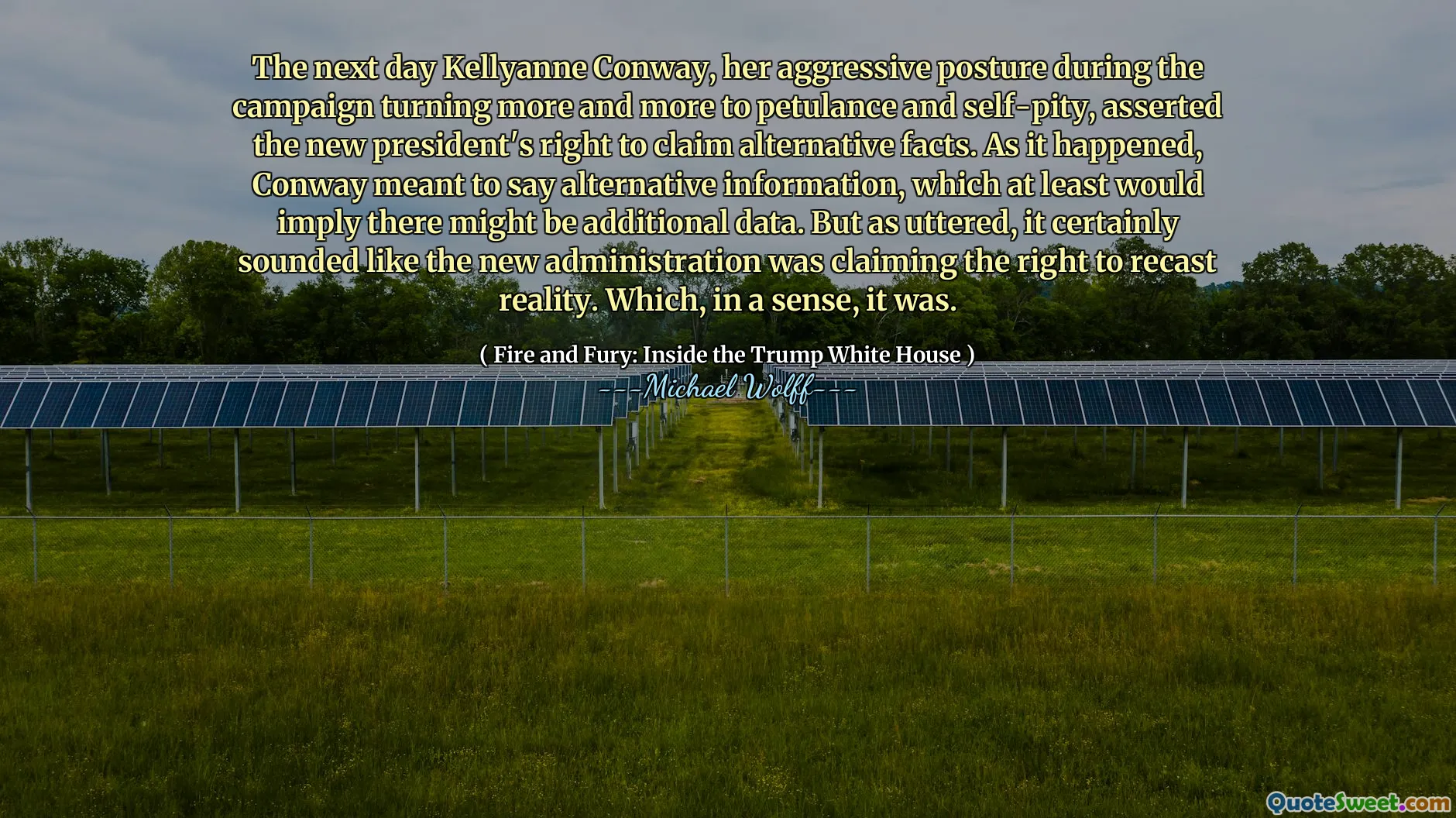
The next day Kellyanne Conway, her aggressive posture during the campaign turning more and more to petulance and self-pity, asserted the new president's right to claim alternative facts. As it happened, Conway meant to say alternative information, which at least would imply there might be additional data. But as uttered, it certainly sounded like the new administration was claiming the right to recast reality. Which, in a sense, it was.
In the aftermath of the campaign, Kellyanne Conway's demeanor shifted from assertive to increasingly defensive and self-pitying. She asserted that the new president had the authority to use what she referred to as "alternative facts." Her choice of words suggested a deliberate attempt to manipulate the truth, indicating a larger trend within the administration to reshape reality rather than present it accurately.
This statement highlighted a broader strategy of the Trump administration, where information was often reframed to suit their narrative. By coining the term "alternative facts," Conway implied that there were different versions of the truth, ultimately leading to a significant departure from conventional standards of veracity in political discourse.











